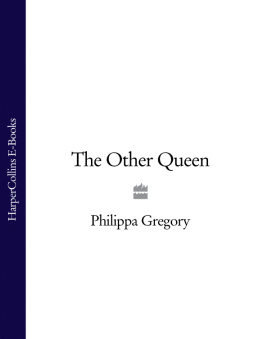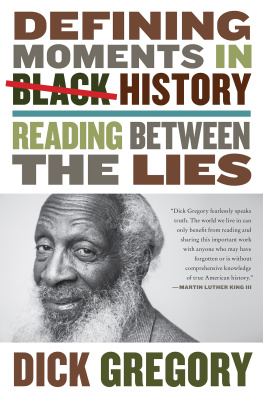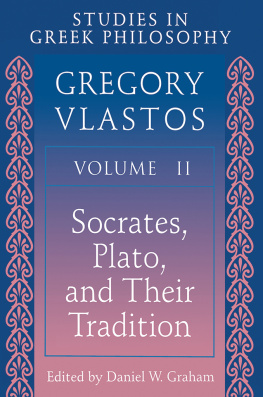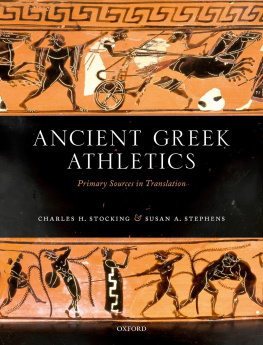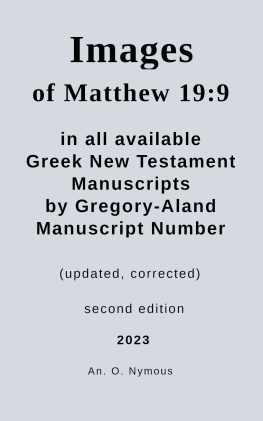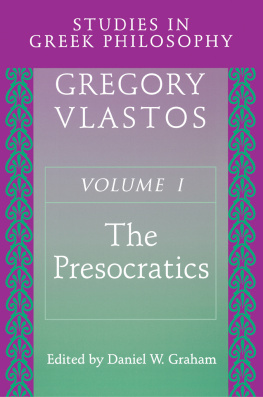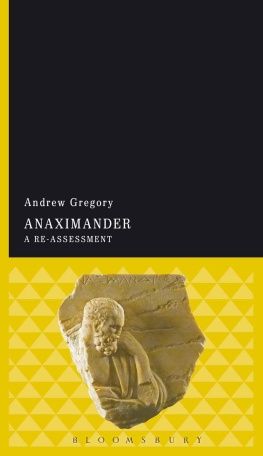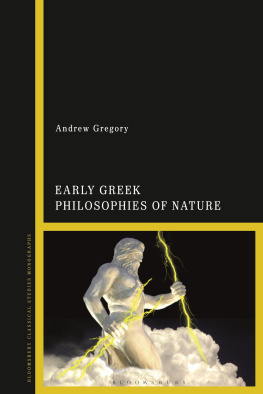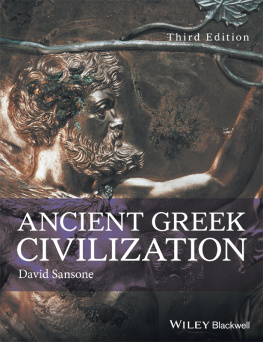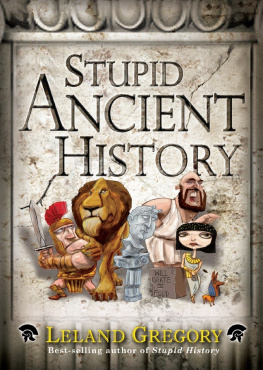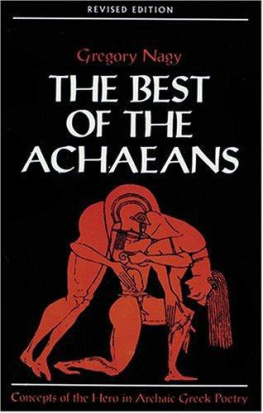Gregory - Ancient Greek Cosmogony
Here you can read online Gregory - Ancient Greek Cosmogony full text of the book (entire story) in english for free. Download pdf and epub, get meaning, cover and reviews about this ebook. City: Greece, year: 2008;2011, publisher: Bloomsbury UK;Bristol Classical Press, genre: Religion. Description of the work, (preface) as well as reviews are available. Best literature library LitArk.com created for fans of good reading and offers a wide selection of genres:
Romance novel
Science fiction
Adventure
Detective
Science
History
Home and family
Prose
Art
Politics
Computer
Non-fiction
Religion
Business
Children
Humor
Choose a favorite category and find really read worthwhile books. Enjoy immersion in the world of imagination, feel the emotions of the characters or learn something new for yourself, make an fascinating discovery.

Ancient Greek Cosmogony: summary, description and annotation
We offer to read an annotation, description, summary or preface (depends on what the author of the book "Ancient Greek Cosmogony" wrote himself). If you haven't found the necessary information about the book — write in the comments, we will try to find it.
Gregory: author's other books
Who wrote Ancient Greek Cosmogony? Find out the surname, the name of the author of the book and a list of all author's works by series.
Ancient Greek Cosmogony — read online for free the complete book (whole text) full work
Below is the text of the book, divided by pages. System saving the place of the last page read, allows you to conveniently read the book "Ancient Greek Cosmogony" online for free, without having to search again every time where you left off. Put a bookmark, and you can go to the page where you finished reading at any time.
Font size:
Interval:
Bookmark:

Publications and texts
DK = Diels & Kranz, Die Fragmente der Vorsokratiker. Zurich: Weidmann, 1966.
KRS = Kirk, Raven & Schofield, The Presocratic Philosophers, 2nd edn. Cambridge: Cambridge University Press, 1983.
LSJ = Liddell, Scott & Jones, A Greek-English Lexicon. Oxford: Clarendon Press, 1996.
LS = Long & Sedley, The Hellenistic Philosophers. Cambridge: Cambridge University Press, 1987.
Simplicius, Physics = Simplicius commentary on Aristotles Physics.
Simplicius, On the Heavens = Simplicius commentary on Aristotles On the Heavens.
SVF = Stoicorum Veterum Fragmenta, ed. H. von Arnim. Lipsiae: Teubner, 1903-24.
Some scientific terms
BB = Big Bang
QM = Quantum Mechanics
SS = Steady State
This book is about ancient theories of how the cosmos began. It is mainly, but not exclusively about the Greeks, as they formulated and discussed problems in cosmogony to a far greater extent than other ancient cultures. It covers a period of roughly 600 BC to 600 AD. This is not a general history of Greek philosophy, or even of Greek science. I mention this because while this book follows the general historical outline of Greek philosophy, it places the emphases in different places and has rather different relative chapter lengths to a standard history of Greek philosophy or science. Nor is this a book primarily about Greek cosmology, about the nature and organisation of the cosmos for the Greeks. Some mention has to be made of what the Greeks thought their cosmogonies led to, but this book concentrates on the origins of the cosmos, and to a lesser extent on the ultimate fate of the cosmos.
This book is accessible to those with little or no knowledge of Greek. All Greek words are translated and/ or transliterated, and technical discussions of issues of text and translation have, wherever possible, been relegated to the footnotes. This book is also accessible to those with little or no knowledge of modern ideas in cosmogony. These are explained as they are introduced and there is no mathematical formulation of these ideas beyond a very basic level.
I would like to thank Jan Opsomer, who read the entire draft and supplied a great number of helpful comments, corrections and suggestions. I would also like to thank various audiences, both in Europe and Australia for their comments on earlier versions of some of the material here. Deborah Blake at Duckworth has as ever been unfailingly helpful, supportive and efficient, and the cover design is her suggestion
This book was written with the assistance of a Research Leave Grant from the Arts and Humanities Research Council, and I would also like to thank the AHRCs referees for their comments on the initial proposal.
For Sheelagh, with love.
I want to deal with two central issues under the banner of ancient Greek cosmogony in this book. Firstly, there is the question of accounts of the absolute origins of matter, space and time. Secondly, there is the question of the origins of the kosmos, where there is a pre-existing physical state which is not sufficiently well ordered to be considered a kosmos. This contrast, between chaos and kosmos, is not present in modern cosmogony and cosmology, where cosmos is taken to be synonymous with universe, but is critical to many ancient accounts. A kosmos for the ancient Greeks was not only a well ordered place, but had connotations of moral and aesthetic beauty as well. The Greek term to pan (the all) I will translate as universe. In some accounts there is one kosmos in the universe, in others the kosmos is the universe or there may be an unlimited number of kosmoi in the universe.
The central aim of this book is to try to explain why the ancient Greeks held their theories of cosmogony. Much interesting work has been done by ancient philosophers to show how Greek cosmogonies differ from creation myths and theogonies, and how they relate to philosophical issues such as change, persistence through change and matter theory. The direction of explanation here has tended to be that because someone held certain core philosophical beliefs about change/ matter/ space, then we can understand, at least in outline, why they held their views on cosmogony. As we see views change on these philosophical issues, so we see views change in cosmogony. This approach has been very valuable, but it is also somewhat limited. It has tended to treat cosmogony as a single issue, where Greek thinkers may have addressed a range of problems in cosmogony. It has also tended to see the traditional philosophical issues as the main generators of debate and change, where there may have been significant discussion of the cosmogonical issues themselves leading to change.
In this book then I want to effect a slight change of emphasis, and perhaps not surprisingly, treat the issues in cosmogony more centrally. This is not to say that Greek thinkers were cosmogonists rather than philosophers. In some cases though, particularly with the Presocratics, cosmogony is clearly a major issue and we may have under-emphasised the roles that a range of problems in cosmogony may have played in the formation of their thought. In particular, I will argue that we can only properly understand the early atomists and Empedocles if we consider them in relation to the cosmogonical challenge of the Milesians and Heraclitus as well as the philosophical challenge of Parmenides. I aim to show that at least some Greek thinkers were aware of a wide range of issues in cosmogony, and that in some cases this can open up new perspectives on their thought in general. I also hope to show that there is an interesting progression of ideas in cosmogony, which may throw some new light on relations between ancient thinkers.
A key argument of this book will be that there are perennial philosophical and scientific problems relating to cosmogony. This is not to say that these problems are insoluble, or that no progress has been made in relation to them. This question will then affect all subsequent Greek thinking on cosmogony. Although we may have a more sophisticated understanding of the problem (nature of necessity, of time, etc.) and more sophisticated possible answers, this remains a fundamental problem for Big Bang cosmogony. As ever with Eleatic problems, the more literally we take nothing (no matter, energy, time, space or laws of physics) the more interesting and difficult the problems become. While there may be perennial core problems in cosmogony, they manifest themselves in varying forms at different times and in different circumstances. The problems as perceived by the ancient Greeks are related to but not identical to the problems addressed by modern cosmogony.
There are also perennial types of solutions to these philosophical and scientific problems. The following problem, phrased in modern terminology, has troubled both ancients and moderns. Can we adequately explain the genesis of our universe as a unique entity using only our knowledge of physics? The answer of many ancients, and many moderns is no, even if their reasons for that answer are somewhat different. The options taken by both ancients and moderns to solve this problem have striking structural similarities. The ancient atomists, and the modern multiple universe theorists both hold that our kosmos/ universe is not unique but is one of an infinite array of
Next pageFont size:
Interval:
Bookmark:
Similar books «Ancient Greek Cosmogony»
Look at similar books to Ancient Greek Cosmogony. We have selected literature similar in name and meaning in the hope of providing readers with more options to find new, interesting, not yet read works.
Discussion, reviews of the book Ancient Greek Cosmogony and just readers' own opinions. Leave your comments, write what you think about the work, its meaning or the main characters. Specify what exactly you liked and what you didn't like, and why you think so.





